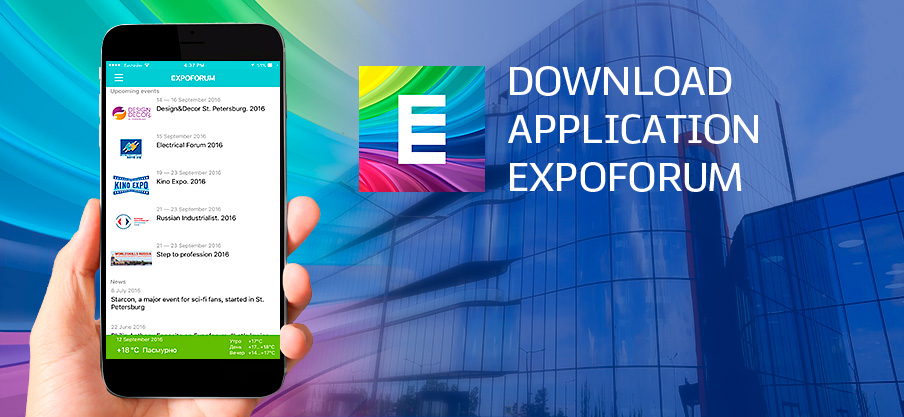The Young in Oil and Gas Sector: SPIGF Running Events for Students
Alongside with the business events and the exhibition, SPIGF-2018 is running the Youth Day: Dialogue of Generations - a discussion platform bringing together oil and gas specialists and students of leading specialized universities from Russia, Germany, China and 10 other countries of the world. The program of the Youth Day includes workshops, a case-tournament, a plenary session, an "off-tie" meeting with leaders of international energy companies, and a cultural program for students.
On the morning of 2 October, the participants of the Youth Day got together for the first time to meet each other. After the official opening ceremony and a small interactive game, they were divided into teams to take part in the workshops. But before embarking on the interactive part, delegates were invited to take a tour of the exhibition site to take a look at the expositions of the leading companies in the industry getting them up to speed on the specifics of the companies.
The section Negotiations on Gas Infrastructure. The Way to Success, focused on the benefits of using liquefied natural gas. After the presentation of Tatiana Zhitenko (Gazprom) and watching the tutorial from Shell, participants were to discuss technology. “Look at the slide. You can see that the gas transmission network is very extensive. It is thousands of kilometres of pipes, roads and air routes. That is why the development of the liquefied gas production technology is so important, it is much more convenient in terms of delivery and transportation”, - Tatiana comments. After discussing the agenda, participants proceeded to study negotiation techniques under the guidance of Natalia Sarakhanova (Higher School of Economics of the Saint Petersburg State University of Economics). "I think the audience is now divided into two categories, - said Sarakhanova in the beginning, - those who know all about natural gas and its processing, and those who know all about economics. In the negotiation process, you have to be well-informed in all topics: know about the markets, stakeholders, about organizational procedures. But in order to have a strong negotiating position, you have to have certain skills. And we are going to map them out with you.” The practice was not long in coming, and near the end of the workshop, participants had to negotiate about an investment project, defending the position of the role assigned to them.
Torsten Helbig (Wintershall holding GmbH) spoke at the workshop about digitalization in the oil and gas industry, at what stages in the modern process of oil production and transportation software solutions can and should be used, how they are deployed and why it is so complex a task. “Gas and oil are the most conservative areas after medicine. If IT can offer a new solution in 2 years, in the oil industry it is 25 years, - the speaker said. - New technologies are an uncertainty. Uncertainty means risk. If something goes wrong, you will lose not only your reputation, but also a lot of money". To consolidate the knowledge gained, Torsten proposed as a case study for the students to come up with the concept of a software solution for their chosen stage of the oil production process and present it in an elevator pitch format with a time limit of 1 minute to convince the “investor” to invest about $ 5 million in the project.
Digital technologies are efficient and even fashionable, but the digital transition requires a certain preparatory process and financial expenses, as well as the formation of standards and regulatory framework. The participants of the workshop Digital Transformation. Digital Counterparts. Cybersecurity were trying to figure out if the oil industry is prepared for this. The Moderator Inna Nazarova, Schneider Electric Russia & CIS. helped them in solving the task. Especially the last issue gave rise to a lively response of the audience. Dmitry Kazakov (CISCO) explained why the business goes to Ethernet, what risks it poses to the industry and how to build a secure network in the industry. Old technologies are expensive to maintain; they are difficult to integrate with other solutions, update and support. This leads to transition of companies to the technological standards of the new generation. “There are three key security components: confidentiality, integrity and availability. And availability is the primary factor, without which the use of technology is not possible”, - explained Kazakov.
Information technology of the new generation was embedded in this workshop, even in a lecture format. The speaker suggested joining the interactive game "Kahoot!": the participants had to enter a special code on the site in order to enter the game and, after having been shown a number of revision slides, to answer test questions related to the issues discussed in the report on the screens of their mobile phones and laptops. The result and points of each player were displayed on the central screen, and those with high scores were recognized as the most attentive delegates of the section.
In the fourth hall, where the workshop Hydrogen. The Bridge between Natural Gas and Renewable Energy? was held, there was a most enthusiastic atmosphere. At the end of the first hour of the workshops, the participants broke into teams, armed with markers and flip charts. After the opening speech of the professor Katrinus Jepma (University of Groningen) explaining the different methods of producing hydrogen, the students were asked to to give their reasons in favour of production of the kind of fuel they choose. "We discussed "gray", "blue" and "green" hydrogen. They vary in cost and their carbon footprint. Our team got the "grey" one. And now we are building our position to produce it. It is the cheapest one, so we will argue that the consumption of natural gas is constantly growing, and we will need to extract it in large quantities," - said one of the participants of the workshop explaining the mechaninism of the process.

 Calendar
Calendar
 Online application
Online application
 Map
Map
 How to get
How to get


